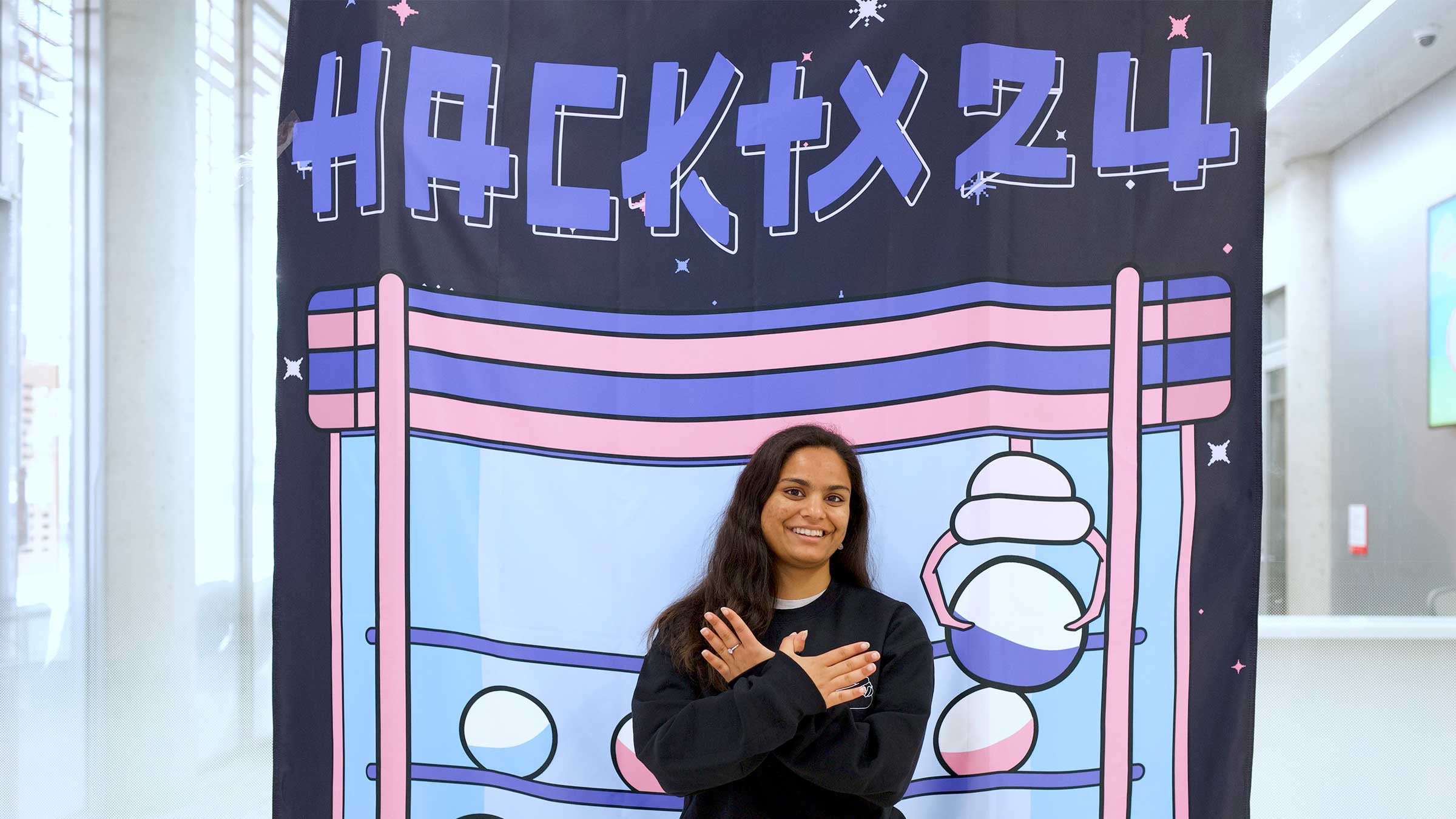Parul Gupta stood on stage, beaming with joy as a representative of Major League Hacking placed a pin on him. Though the pin was small, it represented a big win: Gupta and her team had just won second place out of more than 80 teams at UT San Antonio’s RowdyHacks hackathon.
It’s moments like these that make Gupta especially proud to be part of the first class of statistics and data science (SDS) majors at the University of Texas at Austin. Gupta, a junior who is also minoring in entrepreneurship and pursuing a programming and computing certificate, shared how UT has helped her thrive both in and out of the classroom.
“I feel like my SDS degree, even though it’s a technical degree and it’s in the College of Natural Sciences, it’s actually one that’s pretty interdisciplinary,” Gupta said. “We take classes where we consider ethical applications of technology, and we also take classes that are mathematically difficult and programming-based.”
Gupta’s interest in public health and statistics was piqued by competing in the Disease Detectives event at the Science Olympiad as a high school student. But while her career plans have evolved from becoming a doctor to pursuing data science, her passion for public health has continued.
“As I got older, I realized that patient care wasn’t the environment I wanted to go into, but I learned that you can still use statistics and programming to make an impact in the healthcare space,” Gupta said. “Actually, in my machine learning class recently, we had to pick a paper and present on the types of machine learning models that were used in a study, and I focused on a paper that related to age-related macular degeneration. .
While her degree has strengthened her technical skills, Gupta said it has also improved her critical thinking.
“The data is unclear. It’s messy and there’s no clear approach to dealing with it, so whenever you make a decision with data, you have to make sure you have a strong rationale,” Gupta said. “Since I’m used to looking at types of different datasets, I’m very curious.”
During his freshman year at UT, Gupta competed in a challenge called DataFest at Southern Methodist University. During the competition, she and her team developed a way through which a client of the company could understand where their resources were currently being allocated and where they should not allocate more to prevent waste.
Although she and her friends were the newest team in the competition, they used the tools they had learned in their running, specifically a pack called R Shiny. It provides a way to create web-based applications by mining datasets.
“It was really rewarding when we placed in the top five for ‘Best Data Visualization,'” said Gupta. “It felt good to do meaningful work and to know that all these ideas were actually coming back into the company.”
Last year, following the precedent set by Gupta and her team, five student teams from UT competed at DataFest. Four of the five teams won top prizes last year because previous contestants were able to guide them with their lessons.
“I think that since I’m part of the original group of SDS, we started something that students can carry on,” Gupta said.
While Gupta has found success in competitions hosted by other schools, she has also made her mark at UT as part of the corporate team of Freetail Hackers, an organization that hosts two annual hackathons at UT. As part of the team, Gupta works on fundraising and recruiting sponsors for hackathons.
Gupta may have built a variety of skills through hackathons, but she said her data science education was a powerful resource in itself, one that will carry her throughout her career.
“The way I look at data science is as a tool to learn more about other things,” Gupta said. “If you’re a business-oriented person, data science is being used to help prevent business losses by predicting the success rate of something. If you’re interested in healthcare, you can use data science to analyze healthcare trends or disease transmission.”
